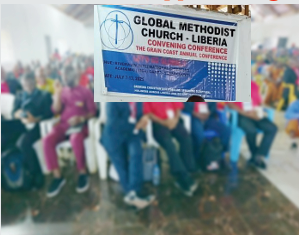Supreme Court Declares Eviction of Global Methodist Church Worshippers Illegal

The Supreme Court of Liberia has delivered a landmark ruling in favor of worshippers of the Global Methodist Church, declaring that their removal from the 72nd Methodist Church building in Paynesville earlier this year was unlawful. In a unanimous decision, the court determined that the Government of Liberia and the United Methodist Church’s Liberia Annual Conference acted illegally when they forcibly removed the congregation without securing a court order. The ruling came in response to a petition for a writ of prohibition filed in March 2025 by Rev. Kenneth Jackson and other church members. According to court records, the petitioners alleged that they were ousted from their place of worship with the assistance of the Liberia National Police after they refused to accept amendments to the church’s Book of Discipline, which included a new definition of marriage. The worshippers claimed the eviction violated their constitutional rights to freedom of religion, association, and due process. Delivering the opinion of the court, Justice Ceaineh Clinton-Johnson sharply criticized the actions of both the United Methodist Church leadership and the police, describing them as “self-help measures” taken without proper judicial authorization. “The removal of the petitioners from the 72nd Methodist Church building without a court order constitutes an unlawful violation of their rights,” Justice Clinton-Johnson stated. “Such actions undermine the rule of law and the principles of due process guaranteed by the Constitution of the Republic of Liberia.” While granting the petitioners’ request to be restored to the property, the Supreme Court clarified that it was not ruling on the issue of property ownership. That matter, the justices said, remains within the jurisdiction of the Civil Law Court, where any party seeking a determination of title must file the appropriate legal action. Lawyers representing the Ministry of Justice, the Liberia National Police, and the United Methodist Church had argued that the evictions were necessary to preserve peace and order within the congregation. However, the high court rejected this reasoning, emphasizing that no person or institution is above the law. The court’s decision effectively reinstates the Global Methodist Church worshippers to the 72nd Methodist Church building and orders all parties to return to the status quo that existed prior to the March eviction. This ruling is expected to have significant implications for religious property disputes in Liberia, reinforcing the principle that neither ecclesiastical bodies nor state authorities may bypass


